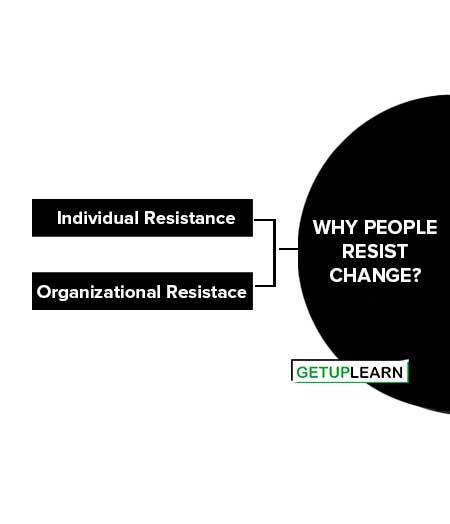Table of Contents
Resistance to Organisational Change
In organizations resistance to change is any attitude or behavior that indicates an unwillingness to make or support a desired change, Change agents often view any such resistance as something that must be ‘overcome in order for change to be successful Managers of the organization face the problem of resistance to change.
Therefore one should be very careful in identifying the change factor because. There are two sides of resistance:
Resistance as a Cost
since all changes have some cost so is the resistance to change. If people resist change, the organization may not be able to introduce a new project, in order to adopt environmental requirements and its basic survival may be jeopardized.
Often many organizations have been forced to abandon change programs because of resistance to such programs or they have been forced to adopt new alternative strategies like shifting manufacturing plants to new locations. All these are causing huge financial burdens on organizations.
Resistance as Benefit
On the one hand, resistance to change is a costly affair, on the other hand, it provides maximum benefits to the organizations as the objectives of change are fulfilled. The essence of this constructive approach to resistance is to recognize that when people resist change they are defending something important that appears threatened by the change attempt.
Thus resistance to change provides help in managing change in two ways:
- It may signal the need for more effective communication about the purpose of the change or need to rethink how a proposed change will affect the organization in totality.
- It also highlights real inadequacies in the proposed change and suggest better ways for developing and introducing changes.
Why People Resist Change?
People tend to evaluate the effect of change individually but they express it through the group in a collective form. Therefore the reasons for resistance to change may be identified in two forms:

Individual Resistance
There are many factors operating at the individual level that are responsible for resistance, these may be seen in the context of three types, Economic, Psychological, and special.
Economic Factors: In fact, these factors relate to the basic economic needs of the workers like necessities of life, job security, and safety:
- Workers may apprehend technological unemployment.
- Workers fear that they will be idle for much of their time due to the increased efficiency of new technology.
- Workers may fear that they will be demoted if they do not acquire the skills required for the new jobs.
- Workers may resist the change leading to setting higher job standards which may reduce the opportunity for bonus or incentive pay.
Psychological Factors: Workers have got psychological needs like the sense of pride of achievement and self self-fulfillment etc. The reasons for this resistance to changes area:
- Workers may experience boredom and monotony in the new jobs as a result of specialization brought by the new technology.
- Workers may resist a change because they do not want to take trouble in learning new things.
- Workers may not have knowledge of the entire change.
- Workers may not be capable of understanding the implications of new ideas and methods.
- Workers may fear that there may be less need for manual work which will lead to a reduction of their personal pride.
Groups at the workplace for the satisfaction of their social needs. The social reasons for resistance to change are:
- Workers may have a feeling and fear that the new social setup arising out of the change will be less satisfying than the present setup.
- Workers may also object to the changes which are brought abruptly without consulting them.
- Workers may feel that changes being introduced will benefit the organization or the employer rather than themselves.
- Workers oppose the people who sponsor and implement the change if they are strangers to them.
Organizational Resistace
Organizational Resistace Factors not only individuals and groups within an organization resist change even the organization itself resists many changes because of certain reasons. These are:
-
Threat to Power and Influence: If the top-level managers feel that the change will hurt their power and influence they will certainly oppose the change.
-
Resource Constraints: Normally changes are resisted by an organization if it lacks in some resources which are critical for implementing the change such as financial resources, personnel resources, etc.
- Heavy Cost / Sunk Cost: Sometimes there are some changes that may involve the change of old assets and the old stuff, such a change involves huge costs, and some organizations are unable to bear it.

